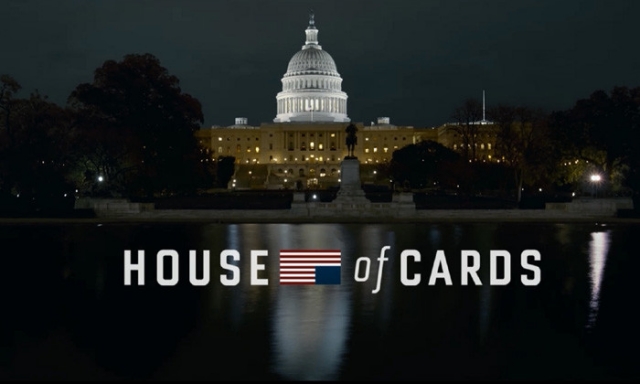5 HR advice from House of Cards’ Frank Underwood

I read with interest the article on Workplace lessons I learnt from watching TV. I have to admit spending weekends binge-watching TV shows probably isn’t the best thing for our health and failing eyesight, but American TV shows have such intense drama and captivating plot twists, one just gets unexpectedly drawn in to the show.
There are certainly good business strategies we can adopt in our career from the political drama, “House of Cards” produced by Netflix. The series follows the story of Frank Underwood (played by Kevin Spacey), who rises to power from a house majority whip in US Congress to become the president of the United States.
No doubt, he is ruthlessly pragmatic and manipulative, and with the support of his ingenious wife, Claire Underwood (played by Robin Wright), they make a great team in their quest to power with their intense brilliance and scheming strategies on how to manage people.
So what can organisational and HR leaders learn from this show?
1. Empower your team and avoid crushing ambitions
Frank Underwood empowers his team, coaches his minions, and gives them clear instructions on how to get tasks done. He ties every task to a larger purpose. Everyone wants to make an impact on the future of the company, and giving this context allows employees to see the bigger picture.
Whether you’re leading a team of one or hundreds, your first priority should be to the people you manage. Encourage your team instead of putting them down. And, simply, be nice and not condescending. Frank does it in a way that it makes his team feel good about themselves even if they haven’t got the slightest idea that they were being backstabbed.
2. Developing a strong core team is key
Frank Underwood is committed to ensuring that those around him are beneficial to his career and progress. He develops his team consistently and recognises the skill sets each individual brings to the table. An organisation success isn’t dependent on its product, it’s dependent on the team. It’s important to have a team that contributes to a common goal.
Leaders should focus on developing a strong team by taking the time to learn employees’ personal goals and let them see their future in the company. HR leaders could start by creating informal mentoring opportunities by holding weekly meetings that are optional but open to all employees. Those who are keen to attend can openly discuss about the business, its people, or their own growth or challenges.
This would give them access to some of the most successful minds in the company, and allow employees to form relationships outside of formal meetings.
3. Positive relationships are crucial
As Frank Underwood’s political career continues to develop, one thing that stands out is his focus on strengthening positive relationships within the team. The power and fragile nature of relationships is one of the biggest takeaways from House Of Cards. It shows us how relationships can help you achieve your goals but also the negative impacts that can happen from not managing them well.
Leaders and HR teams need to tread carefully on these and instil positive relationships and put to bed any toxic or malicious gossip going around that makes the workplace an unhappy place to work in.
4. Don’t underestimate face-to-face meetings
Email messages and other internal messaging used for communication may seem efficient but nothing beats the face-to-face interaction amongst employees. The cast of House of Cards is constantly engaging in face-to-face meetings. Teams can get a lot more accomplished this way.
Organisation leaders should try to create a culture that encourages team interaction and involvement so that internal teams get more comfortable with one another to interact personally.
5. Avoid making assumptions
In one of the episodes, a character (Gillian) goes to work for Claire’s organisation. Gillian later tells Claire she is expecting a baby. Their work relationship sours along the way over an issue and Claire confronts her about her insubordination in a heated conversation in the office hallway. Claire ‘suggests’ Gillian take a ‘leave of absence’. Gillian then sues for pregnancy discrimination, claiming Claire had indeed fired her.
What should HR take note of? State clearly what consequences you’re applying in a situation where an employee is being disciplined. Claire’s suggestion that Gillian ‘take a leave of absence’ was unclear and left it open to Gillian’s interpretation. Is this suggested leave of absence paid or unpaid leave? How long would this leave be and under what conditions would Gillian be allowed to return to work?
Employee discipline if handled poorly, can have serious consequences for employers. As a HR leader, if you aren’t clear about the limitations of the consequence, the employee will make assumptions and thereby leading to undesired actions against the organisation, which is exactly what happens to Claire.
Never assume you know what’s really motivating an employee – or that your close friendship with an employee will prevent them from taking action against you, and your organisation. This is another common mistake, especially in small organisations.
Managers should never assume that statements or actions made casually, or that have no malicious intent, will be taken as harmless by an employee. No matter how amiable or close the working relationship is between superior and employee, it is still an employment relationship, subject to employment law.
Conclusion
It is therefore up to the HR team to work with the executive leadership to promote a culture of openness, recognition and appreciation that shows employees how much they are valued. This is a good way to engage employees and retain them within the organisation.
And to leave you with a powerful quote from Frank: “If we never did anything we shouldn’t do, we’d never feel good about doing the things we should.






.jpg)